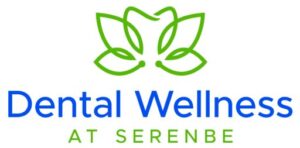
If you’re 65 or older, you’re probably familiar with dental issues such as cavities and receding gums. According to the Centers for Disease Control and Prevention, about 20% of people in this age group have untreated tooth decay, and over two-thirds have significant gum disease.
“Older teeth are more brittle, making them more susceptible to fractures and wear,” says Olivia Sheridan, a professor at the University of Pennsylvania School of Dental Medicine. Additionally, age-related illnesses like Type 2 diabetes can exacerbate dental problems.
Dental issues can cause more than just pain; they can impact your overall well-being. Loose or missing teeth can make it difficult to chew, especially hard foods like fresh produce, notes Athanasios Zavras, chair of the Department of Public Health and Community Service at Tufts University School of Dental Medicine.
Dental problems can even affect heart health. A 2021 study in the Journal of Periodontology found that people with gum inflammation were more likely to have arterial inflammation, increasing the risk of vascular disease. “Gum disease creates pockets where anaerobic bacteria thrive and can travel to other vulnerable sites, like the heart,” Zavras explains.
Given these risks, maintaining good dental care as you age is crucial. However, this can be challenging since traditional Medicare doesn’t cover most dental services (though some Medicare Advantage plans offer partial coverage). Here are some expert tips on managing common dental problems and knowing when to seek professional help.
When You Have a Toothache
Cavities, caused by bacteria in plaque turning sugars and starches into acid that erodes tooth enamel, are a leading cause of dental discomfort. Receding gums can exacerbate this by exposing the tooth root, making it more susceptible to decay. Additionally, old fillings can fracture over time, allowing bacteria to infiltrate and cause further decay.
Dry mouth, common with age, reduces saliva production, lowering the mouth’s pH and creating an acidic environment conducive to bacteria growth.
Best Steps:
- Brush and floss twice daily, paying special attention before bedtime, as saliva production decreases during sleep.
- If you’re prone to cavities, consider using prescription high-fluoride toothpaste or a custom fluoride gel tray recommended by your dentist.
- See your dentist promptly if you experience pain.
For Puffy, Bleeding Gums
Gum (periodontal) disease, an infection of the tissue supporting your teeth, is a major cause of tooth loss in adults. It results from plaque buildup and is exacerbated by factors like a weaker immune system, difficulty brushing and flossing, dry mouth, and infrequent dental visits.
Best Steps:
- Brush gently to avoid exacerbating gum recession, and floss regularly to remove bacteria and food particles that cause inflammation.
- Consider using a water flosser if conditions like arthritis make traditional flossing difficult.
- For mild gum disease, deep cleaning (scaling and root planing) may be necessary. Severe cases might require surgery.
If Your Mouth Is Always Dry
Aging often reduces saliva production, leading to dry mouth, which affects about 30% of people over 65 and 40% of those over 80. Dry mouth increases the risk of cavities and gum disease and can be worsened by certain medications. Sometimes, dry mouth comes with a burning or tingling sensation, possibly due to vitamin B or iron deficiencies.
Best Steps:
- Stay hydrated by drinking water frequently. Other non-sugary drinks like milk or herbal tea are also good, while alcohol and caffeine should be avoided as they can dry out the mouth.
- Chew sugar-free gum or suck on sugar-free candy containing xylitol to stimulate saliva production.
- Discuss medication changes with your doctor if they might be causing dry mouth.
- For burning mouth syndrome, have your primary care provider check your iron and vitamin B levels.

A Good Dental Routine
Maintaining a good dental routine is vital. Floss daily and brush twice a day for at least two minutes with a fluoride toothpaste. An electric toothbrush may be beneficial; a 2019 study found it led to less gum recession and tooth decay compared to manual brushing.
Regular dental visits are essential, with at least one visit per year recommended. However, as you age and dental risks increase, your dentist may advise professional cleanings at least twice a year.
By following these guidelines and seeking professional advice when necessary, you can maintain your oral health and overall well-being as you age.





